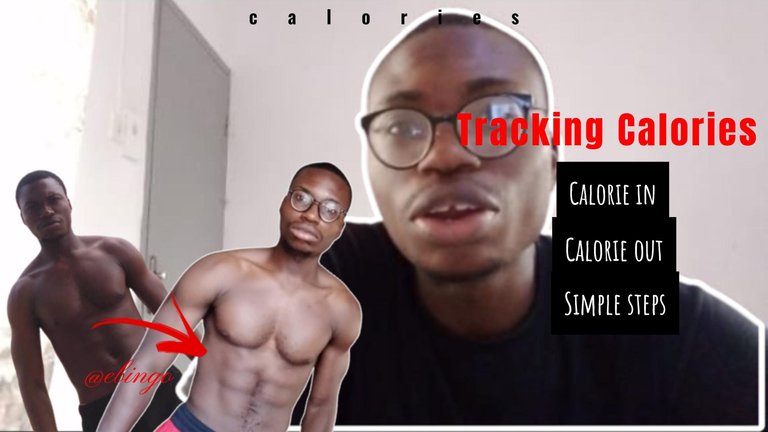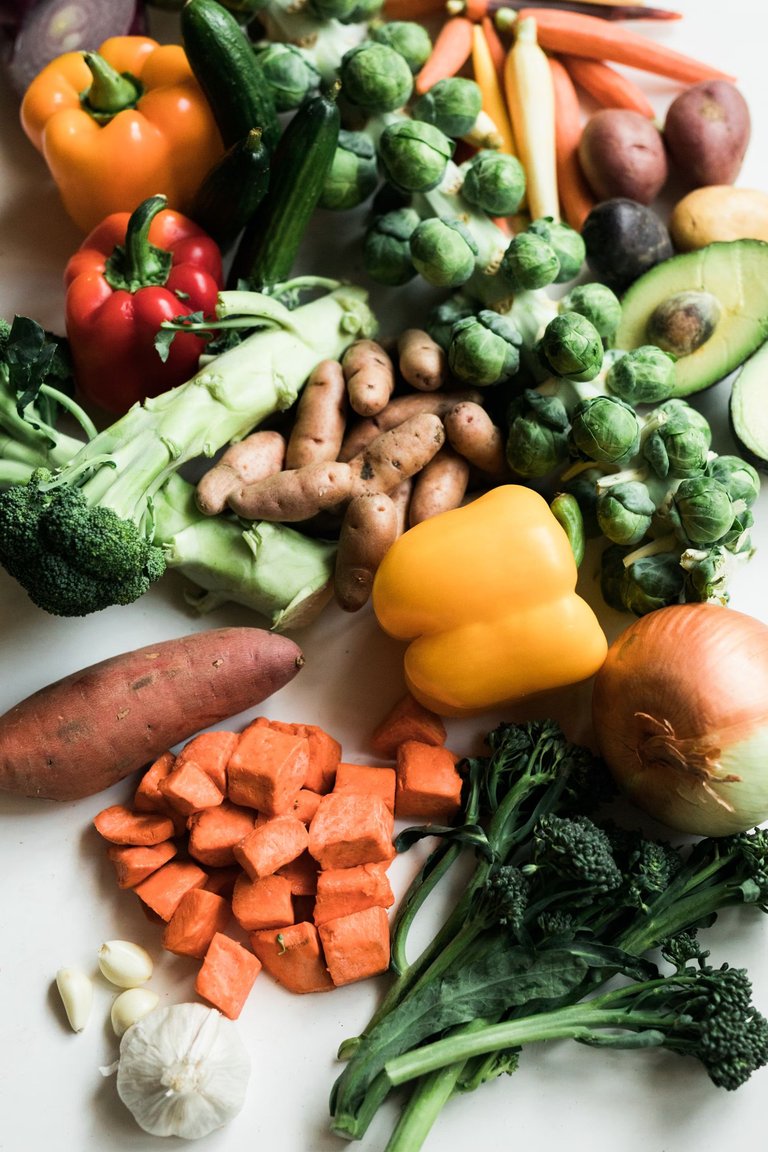Does The Calorie In Calorie Out Method Work?

Source: Phone image, Canva and bg remover
transcript
Welcome to my YouTube channel again. I'm going to be talking about calorie counting, calorie in, calorie out, how to count your calories. So stay tuned and learn what I have to teach you in this video.
I'm going to be telling you why you are not losing weight or why you're not gaining weight. Because there's a small minority of people who, their main problem is not that they are not losing weight, it's that they are not gaining weight, and they are trying their best but they are not seeing any results.
So let me tell you exactly why. The reason why you are not able to control the fact that you are not gaining weight or you're not building weight is the fact that you are not tracking your calories. And how do you track your calories?
This is a very important part of this video. You need to stay tuned. How I track my calories? I know that there are different apps these days. People have apps that they use to track calories.
They snap the food, AI interpret exactly what is on their plate and tells them how many calories they about to eat. Well, I don't have access to those type of apps, and I am not very I don't think those apps are cheap, okay? I don't think those apps are cheap, and I don't have access to those types of apps.
So it would be nice if you could get those type of apps. I'm sure they are very helpful if you can afford those type of app, but I don't have them. So what I do is I track my calories after the day has gone by, as opposed to trying to track them right there and then.
I count everything the day after. So I count my the number of servings of rice that I've had, the number of servings of Oats I've had, the number of spoons of milk I had, the number of the amount of meals of honey that I put into my food, the number of eggs. I just have a rough value of how much it is. The best thing you can do for yourself as someone who is trying to lose weight is to overestimate the amount of calories that are on your plate.
So normally whenever you have a plate of rice, it's going to say that if you check on Google, it's going to say that 100 grams of rice is about it's about 100 calories, 100 to about 110 some people will say 120.
The best thing you can do is to pick that 120 as the actual value and use it for yourself because it's more than likely that if you are adding weight, then you are probably getting the higher value. You are probably putting more rice on your plate, or maybe you are getting the, you are extracting more of those calories from the food for whatever reason because people metabolize food differently.
Well, I have seen a video where that was being discussed, and I think it's true.
People metabolize food differently. People extract food differently, so that's the first thing. So if you are someone who is trying to lose weight, you overestimate the amount of calories that you took in. Now, tracking your calories doesn't also just mean the food you have on your plate, it also means the activity you did.
So if you're going to be tracking your calories properly, then you are going to have to calculate how much exercise you did during the day, your BMI, and also the amount of activity you had throughout the day.
So at the end of my, it's like a balancing sheet. I know some of you did Accounting in school and some of you might have done economics and stuff like that, you're trying to balance a sheet, okay? It's calorie in, calorie out. You have a negative column and a positive column.
Let me show you. I constantly I'm drawing up this to give you a good example. I do this for my finance also. Oh, these are my receipts, my receipts falling out. So I do this for my finance also. You have negative and positive columns. You have two columns. This looks really rough, but this is negative, this is positive.
This is okay, this is for my finance, okay, this is for calories. So you have the column for calories, the amount of calories that you're getting in, positive and negative. So early in the morning before I even went for food or anything, I went for a 10-minute run, 150 calories burnt.
So in that way, while I'm calculating my calories that I've done for the day, I can better manage the next day that I'm going in for because I see what I did the last day and I see the balance I had from the last day. I have something that I'm trying to work on and I'm trying to reduce. Like on some days, I might have a 1,000 calorie surplus.
So I'm opening my account. It's like an opening account. I'm opening my account with a 100 calorie surplus, and I'm trying to burn that 100 calories throughout the day. And if I'm trying to be on a deficit, for me, I'm trying to have an equal number of days where I'm on a deficit and an equal number of days where I'm on stop. So I'm taking out what I'm putting in. I want to maintain this body fat that I have. It's about, I would estimate to be around 20%.
Body fat and I want to maintain it throughout my existence, really because I don't see any reason why I should be falling below 20% and going all the way down to 15% and unhealthy. I've been there. I've been close to a single-digit body fat as I could ever like. So I have put myself through extreme starvation, and I don't think it's necessary anymore, okay?
So if you are someone who is trying to be on a calorie deficit, the best thing you can do for yourself is to overestimate the amount of food, the amount of calories that you're getting in and underestimate, just the same way I said that for if you check the amount of food, you check just how much you have put on your plate, different information will come up.
Like a range of information is going to come up. Like for rice, might be around 17 of rice. 100 grams of rice might be somewhere around 100 calories to about 120 calories. You put yourself at that 120 or 110 calories, and then for your exercise, you underestimate how much exercise you have done during that time.
You Google it, it's always there. Like just check it, one 10 minutes of running is how many calories burnt, and they're going to bring out, I know what I saw was 150 to 200 calories, so they're going to bring out that for you, and then you take note of that and then put it in your, in your diary, your journal, however you're documenting it.
So that is calorie out. So you balance it out at the end. At the beginning of the day, you balance out yesterday's, um, yesterday's caloric intake, and then you know exactly what you're dealing with. Bread is one big calorie stacker.
Types of Food

Photo by Nathan Dumlao on Unsplash
Like if you have bread, bread, one slice of bread from what I saw is about, um, 70 to 90 calories, and that's just one slice of bread. It's never going to fill you as much as a serving of rice, and the difference is about 30 calories or 20 calories depending on where you're getting your information from. So that is important information. Keep that in mind when you are trying to balance out your, your, your calorie in, your calorie out.
If you have eaten a whole loaf of bread, it's about 1,400 calories depending on the type of bread also. But I believe you should be going for the highest value. Whatever you find the highest value of a loaf of bread, you should use that in your mind that that is exactly what you have eaten. It's not a pure mathematics. It's not a pure, um, it's not like it's not like financial balancing like I showed you.
I also balance out my finances. It's not pure mass like that, but it's also mental psyche, but you will be very well aware like if you have eaten more than or you feel full from the, the day previous day, you still feel it at the next day that you still have some of those. You still have some of that in you like you still feel like you are you're full.
You're so much you can't sit properly. You have that feeling on you. So you have to balance out what you're seeing mathematically with your calorie in, calorie out, how you feel and your energy level at the gym. Like yesterday, I went to the gym fasted because I was on a 1,000 calorie surplus after eating lots of bread. I ate a lot of bread. So I just put myself on a fast and then I came back. I ate some oats, and then I ended the day with rice. So I felt full the day before.
I know that I had a lot of bread the day before, and at the gym, my energy level was not totally where it's supposed to be. It wasn't the worst. I didn't go to the gym and I couldn't live to it, and I was feeling like a mess. It wasn't that bad, but it wasn't awesome also.
So you need to balance out your calorie intake, your energy level, and what you're seeing in the books, okay? So when you're documenting it, you need to be able to gather as much information as you can, and you need to be putting yourself on a caloric deficit by remembering that you, if you are trying to lose weight, should be overestimating the value of your food and underestimating the value of your caloric intake.
How my Girl Friend Stays Lean

Photo by Eugene Chystiakov on Unsplash
So I was about to talk about, yeah, my girlfriend. My girlfriend skips meals a lot. She's one of the people that want to build, add extra weight. She skips meals a lot. So one way you can start counting your calories and making sure that you are meeting with your caloric needs for a person who is trying to gain weight is just by not missing meals.
If you eat three times a day, you are more likely to meet up with your BMR and then surpass it. But if you keep on skipping meals as someone who is trying to gain weight, you will always be missing your targets, and the more you miss your target, the more you lose weight.
But if you are somebody who is trying to lose weight, the more you miss your meals, you skip your meals, the better you are, the higher your chances are of going below your BMR and losing weight for that day, losing calories for that day. And then if you do this, if you meet your target day to day, it's better than week to week.
No, if you meet your target day to day, doesn't compare as meeting it up week to week, and that doesn't compare as meeting it up month to month.
And it doesn't compare as meeting it up year to year. So the best thing you can do for yourself is to meet your target day in day out, week in week out, monthly, and then yearly. That's the best thing you can do for yourself because if every time you keep on missing your target, you will end up like for someone who is trying to build weight, you end up in a deficit and you keep on losing weight, you keep on staying below the normal body mass index.
And then if you are someone who is trying to lose weight, you will keep on thinking that you are going below your in caloric deficit, meanwhile you're on the stop-loss, and day in day out, week in week out, monthly, you keep on building weight.
So now, types of food that you can eat to be on a deficit or a surplus depending on what you are trying to attain. So I already talked about bread. Bread, once slice of bread is about 70 to 90 calories, a calorie bomb. Like it's a calorie bomb, it blows up. So what you want to do for someone who is trying to lose weight is to find calorie-heavy food that has very little calories. I saw someone at the gym, she's munching on vegetables a lot.
Vegetables have very little calories in them, and they are very heavy, they're dense, they have a lot of fiber, it takes a while for our body to be able to process that, so you feel full, your hunger is not going to be your issue at that point.
However, there is the risk of you being hypoglycemic and starting to have symptoms of hypoglycemia. So when you start having symptoms of hypoglycemia, you start feeling dizzy, you start feeling nauseous, you start feeling like you're about to faint, you might even faint, and then in severe cases, some people might actually start having seizures, they start having convulsions because they have not had anything to eat, start having TR, your hands start shaking, don't get yourself to that level, that's not a necessary level for you to get to if you really want to lose weight, it's not really necessary also.
In my own experience speaking antidotally, I have noticed that the more I'm able to keep myself in a caloric deficit or fasted, the better I'm able to handle it. So with time, I start, I think the body becomes better able to metabolize fat.
But this is purely from my own experience. I have gone on a 36-hour fast, I didn't eat, I was just drinking water, and I was able to go for a jog and I came back. I was way below, I was below 10% body fat, and I was able to maintain it for a while. The reason why I feel I was able to do that is because my body was better able to metabolize the fat that is stored in my body.
And I think that if you are not used to doing that during the initial time when you start fasting, during the initial time when you start putting yourself on a deficit, it's harder for you to maintain. So that's my message anyway. This has been a long video, and I just want you to, like, I want you to subscribe if you have learned anything new. If you have any questions, let me know in the comment section below.
And get out there, do your thing, don't let anybody stop you, even if the person trying to stop you is you. Peace.
Congratulations!
✅ Good job. Your post has been appreciated and has received support from CHESS BROTHERS ♔ 💪
♟ We invite you to use our hashtag #chessbrothers and learn more about us.
♟♟ You can also reach us on our Discord server and promote your posts there.
♟♟♟ Consider joining our curation trail so we work as a team and you get rewards automatically.
♞♟ Check out our @chessbrotherspro account to learn about the curation process carried out daily by our team.
🏅 If you want to earn profits with your HP delegation and support our project, we invite you to join the Master Investor plan. Here you can learn how to do it.
Kindly
The CHESS BROTHERS team
Actually, Calorie in and out Works but there are a lot of factors to consider when looking at this, and this factors includes metabolism, activity, and so on. When it comes to weight gain, genetics also play a big role.
Yeah, the truth of the matter is that the calculations of BMR are not exact but the difference between persons of a certain height and weight with a "high metabolism" and a "low metabolism" is not that much even when factoring in genetics.
Genetics plays a much bigger role muscle response to exercise
Thanks for your contribution to the STEMsocial community. Feel free to join us on discord to get to know the rest of us!
Please consider delegating to the @stemsocial account (85% of the curation rewards are returned).
You may also include @stemsocial as a beneficiary of the rewards of this post to get a stronger support.